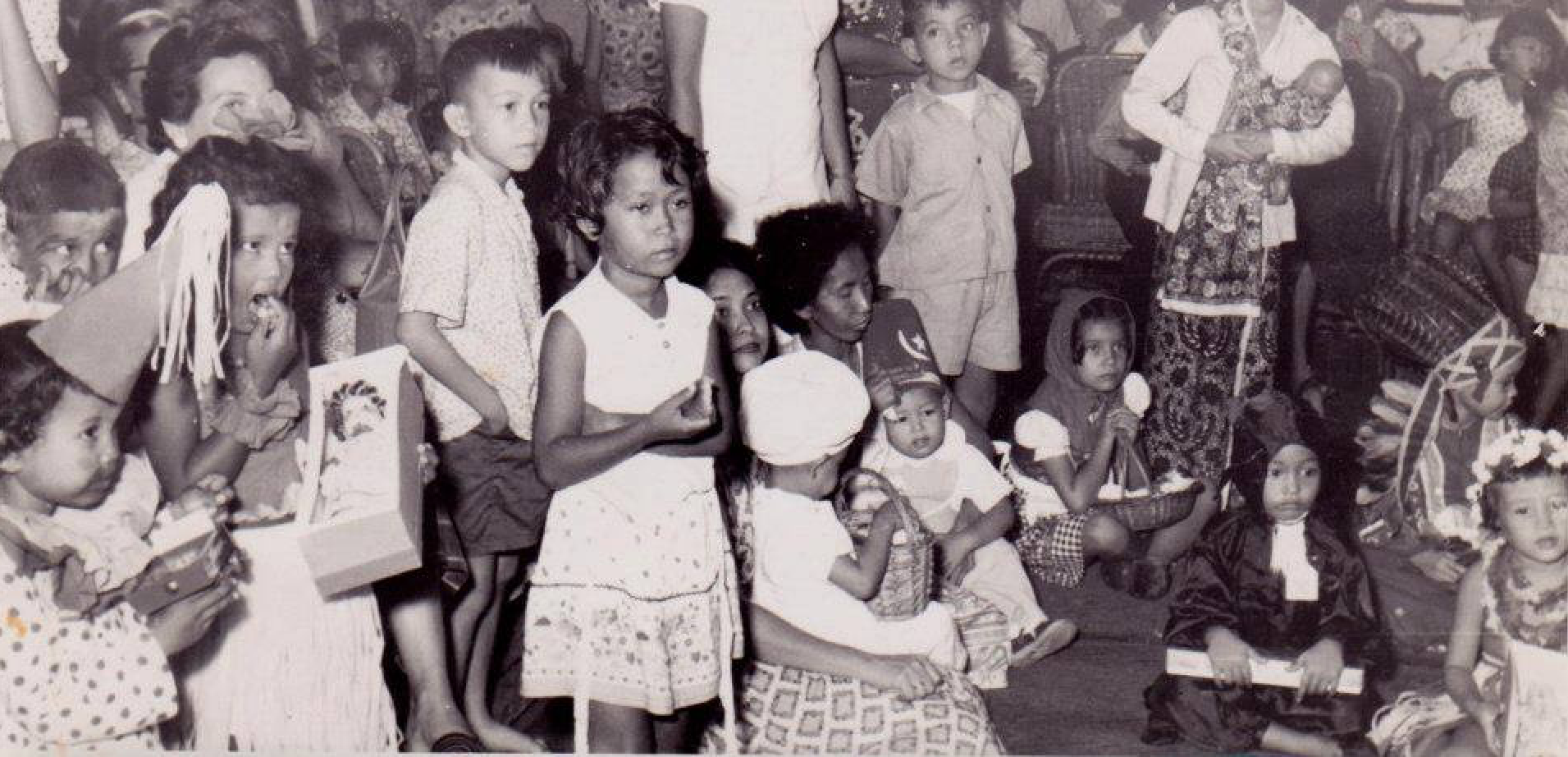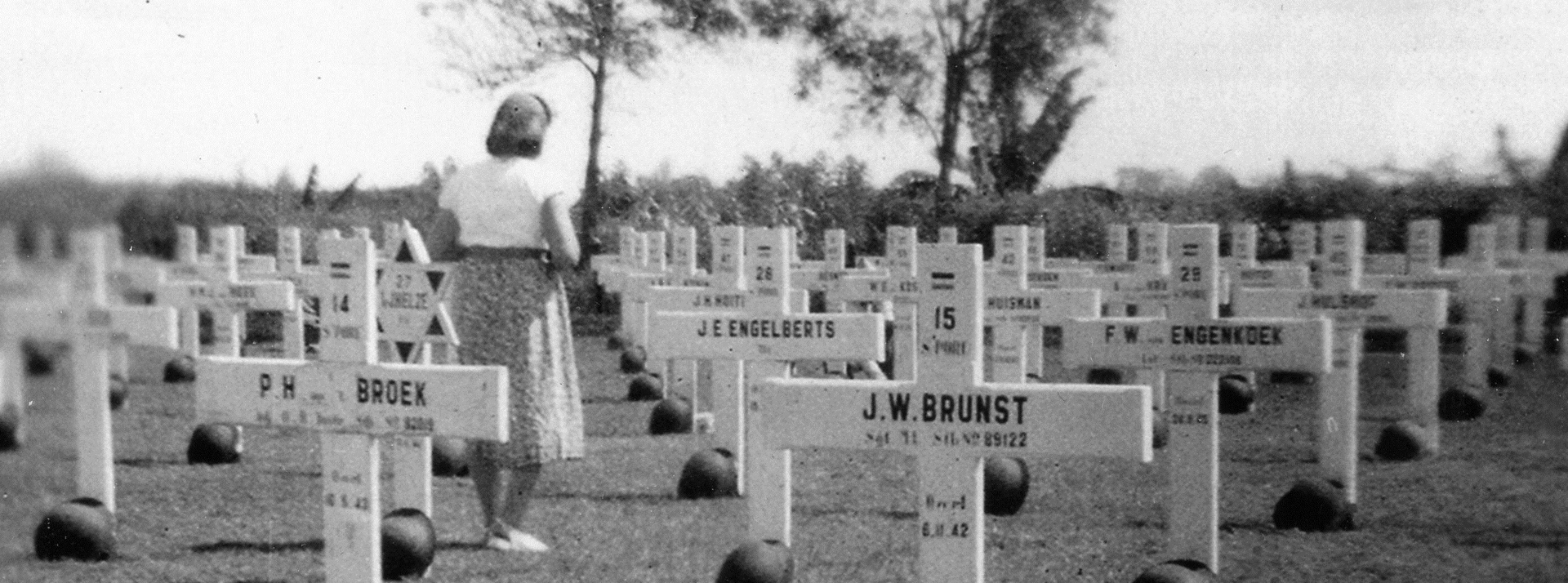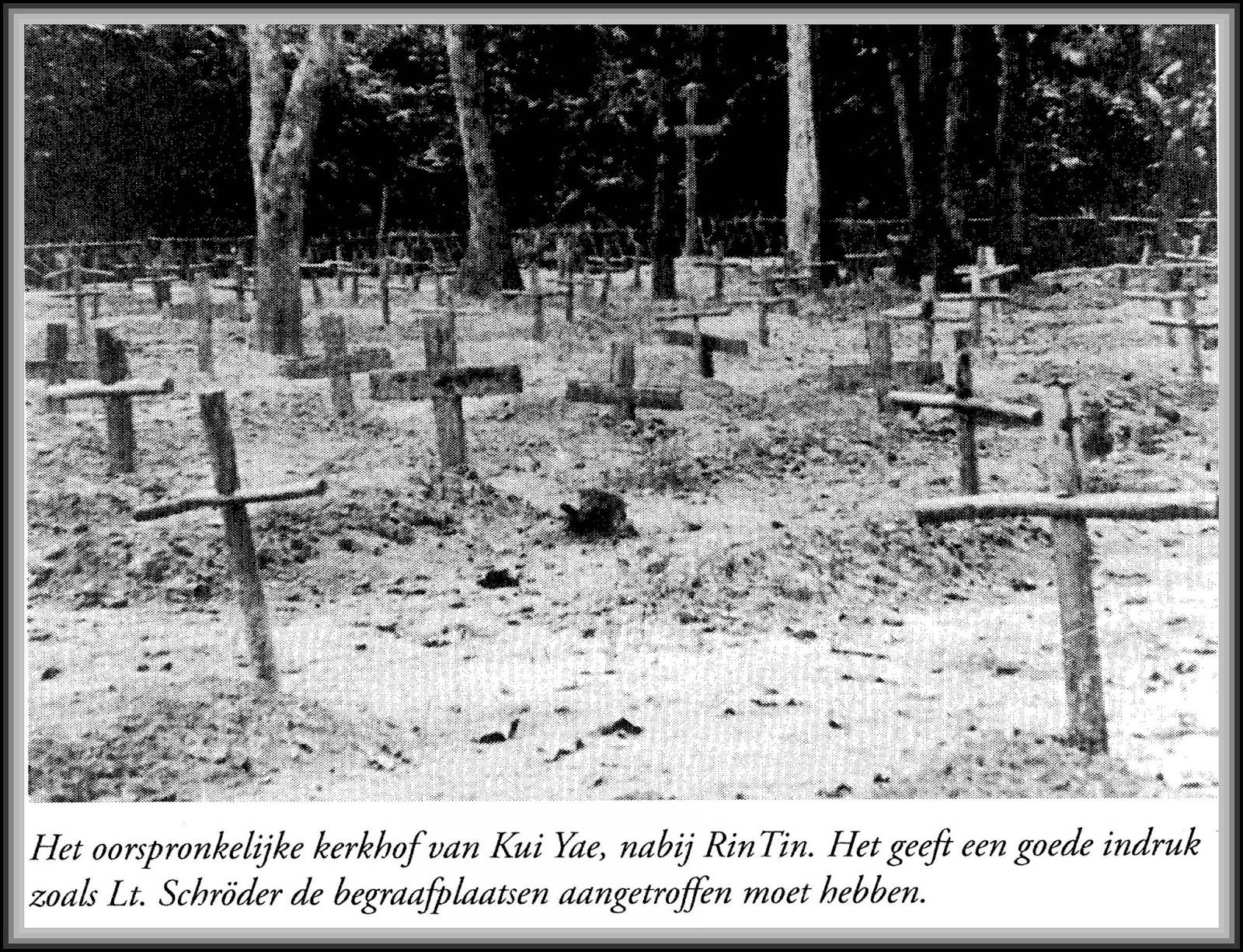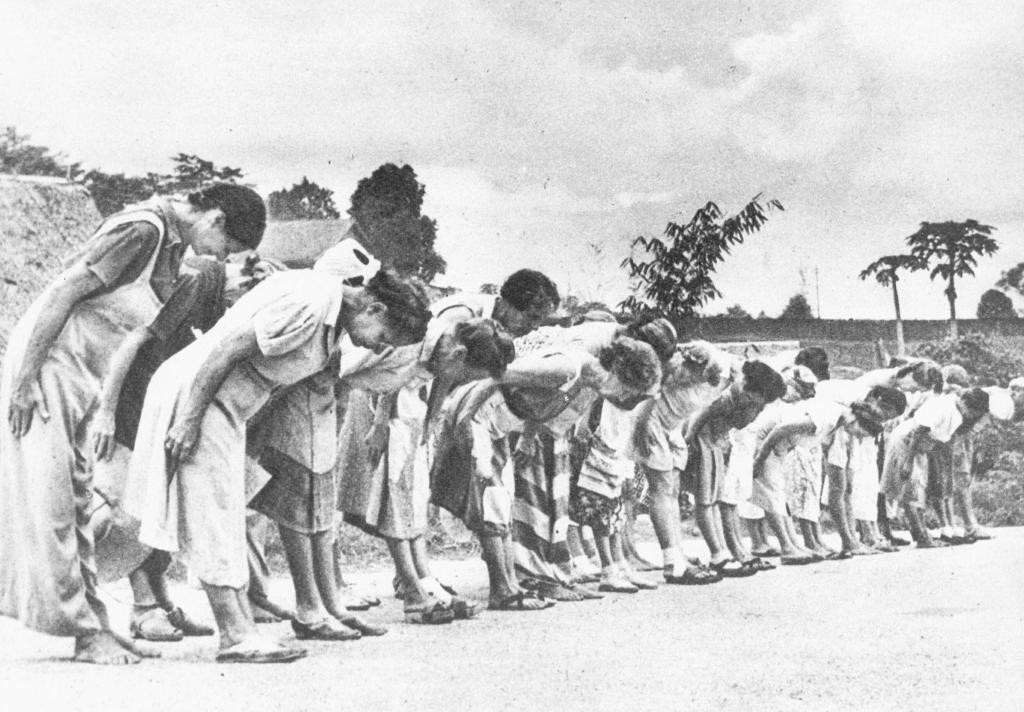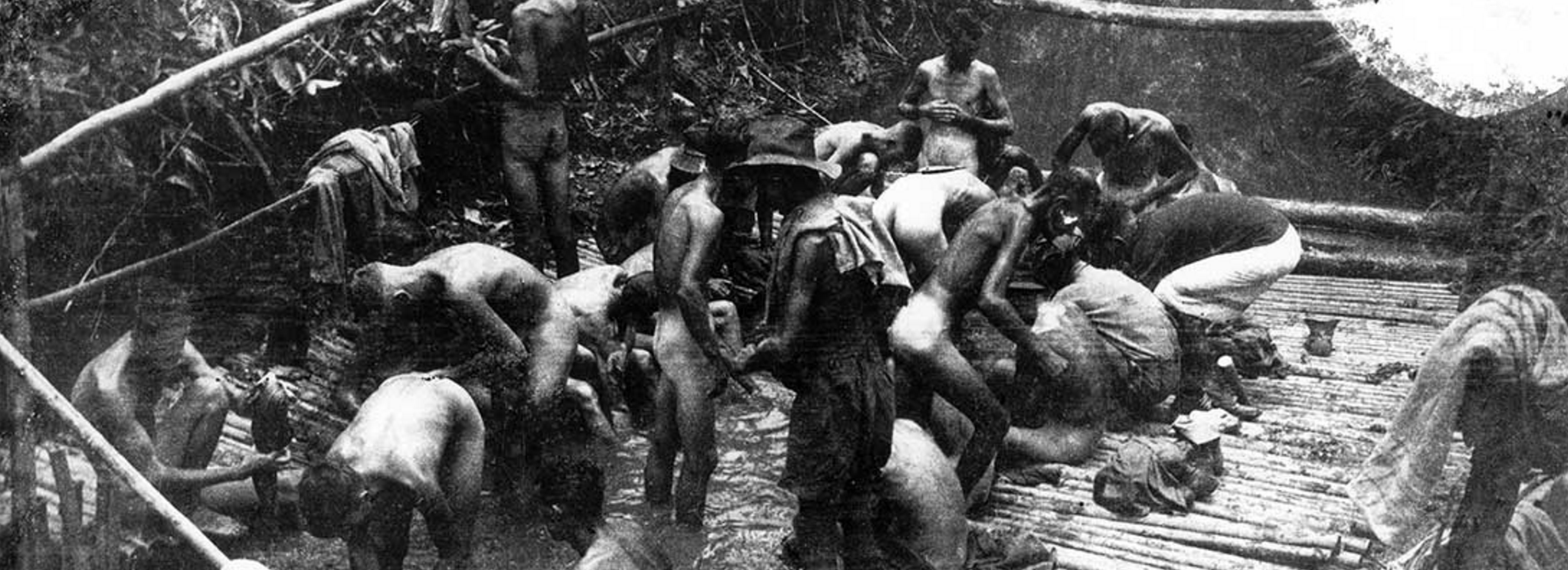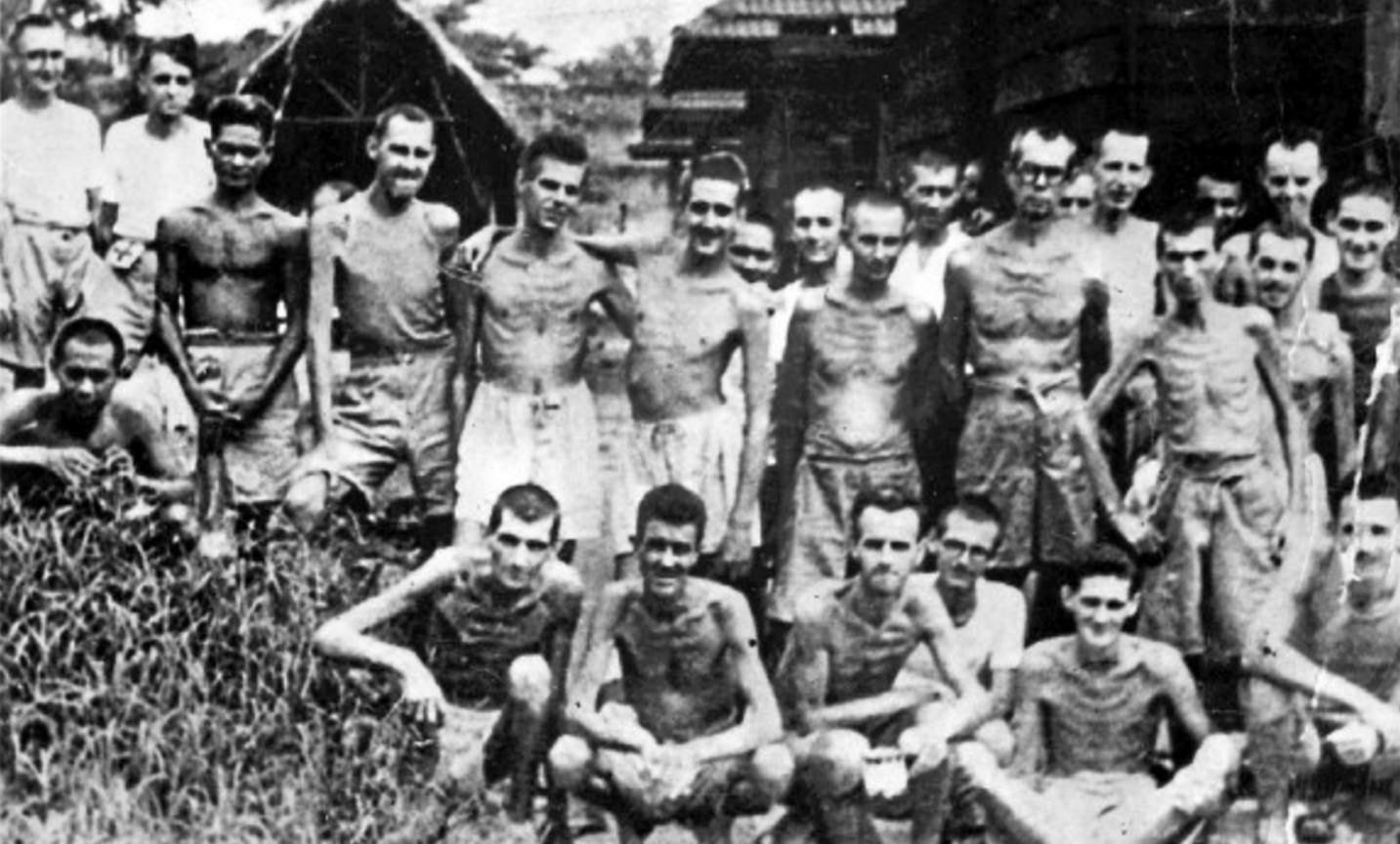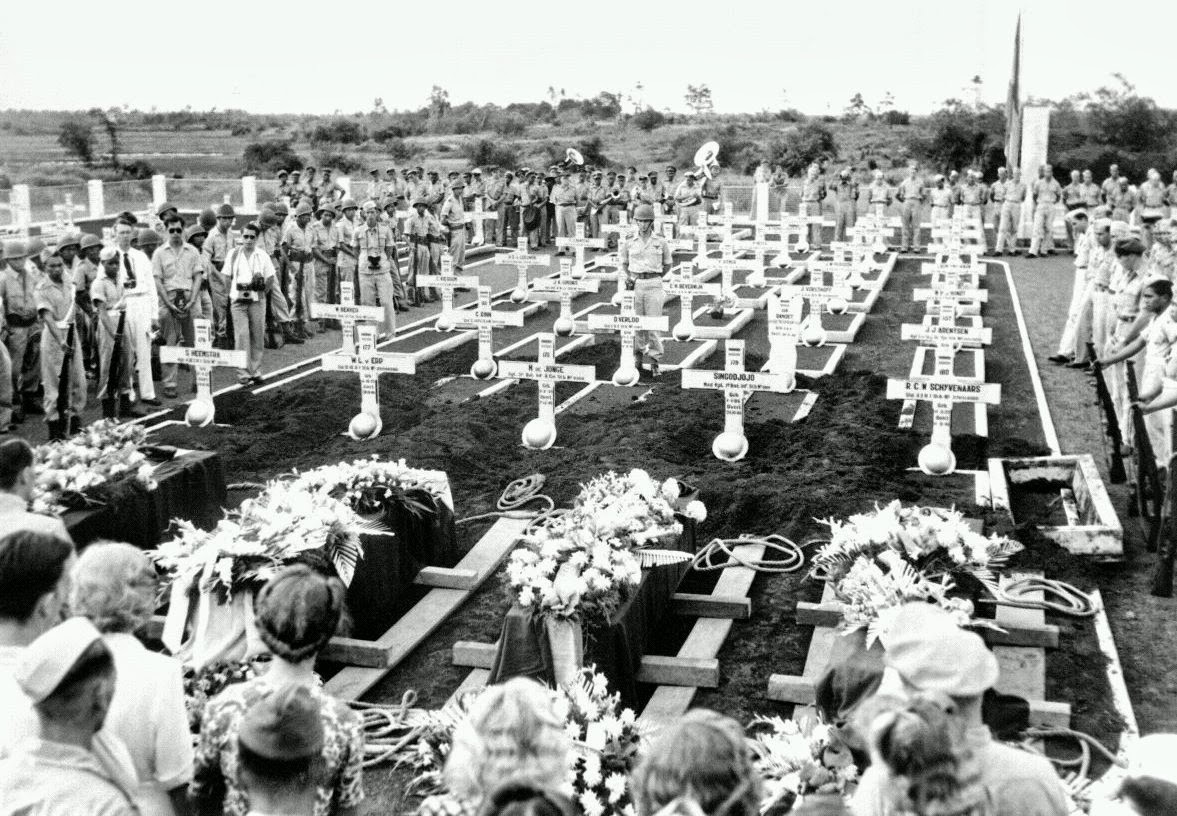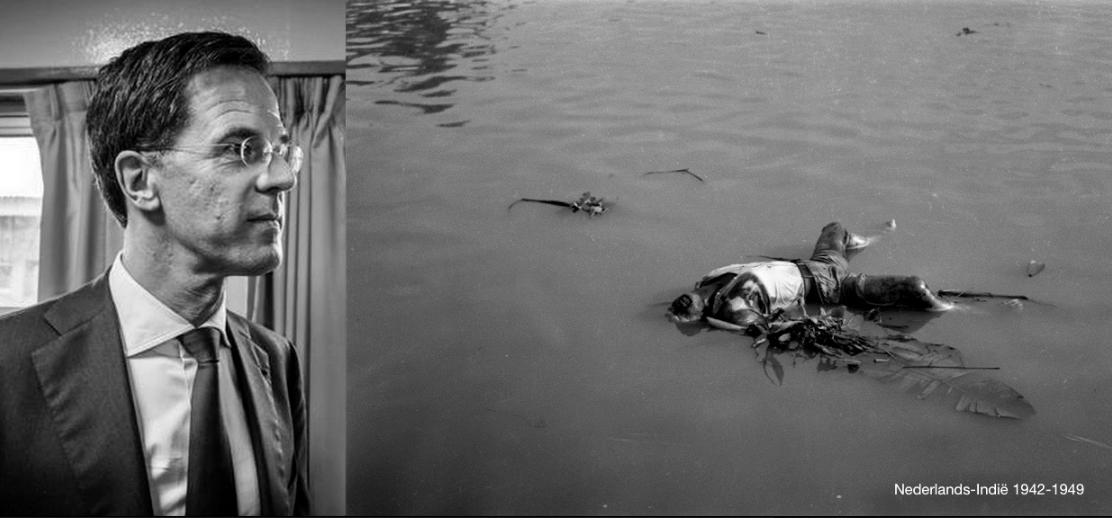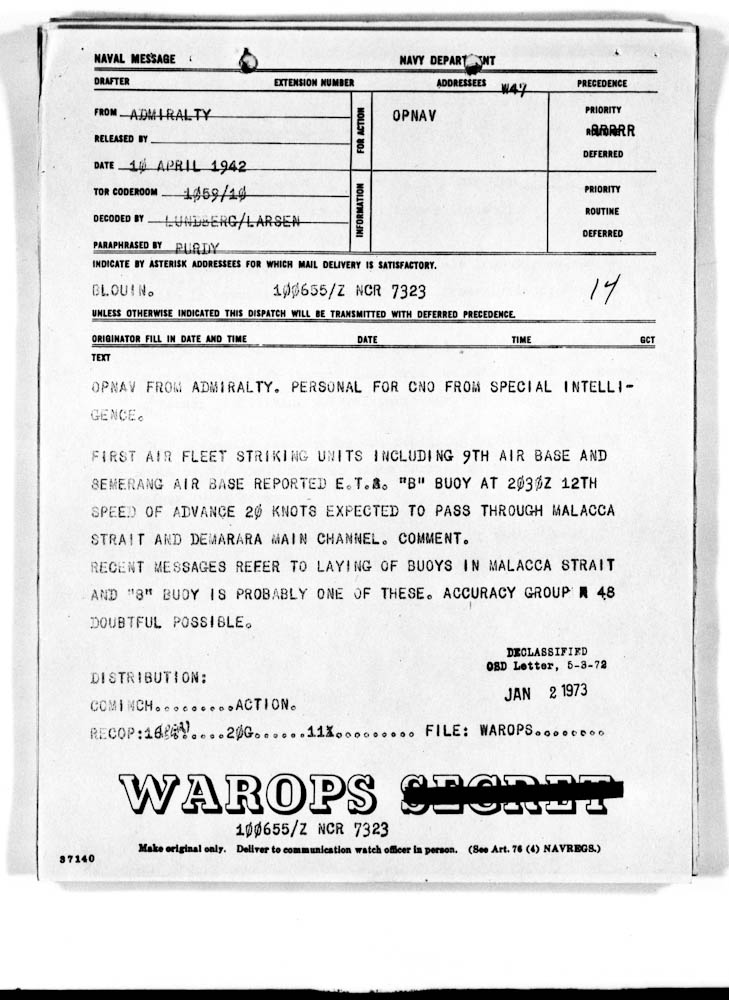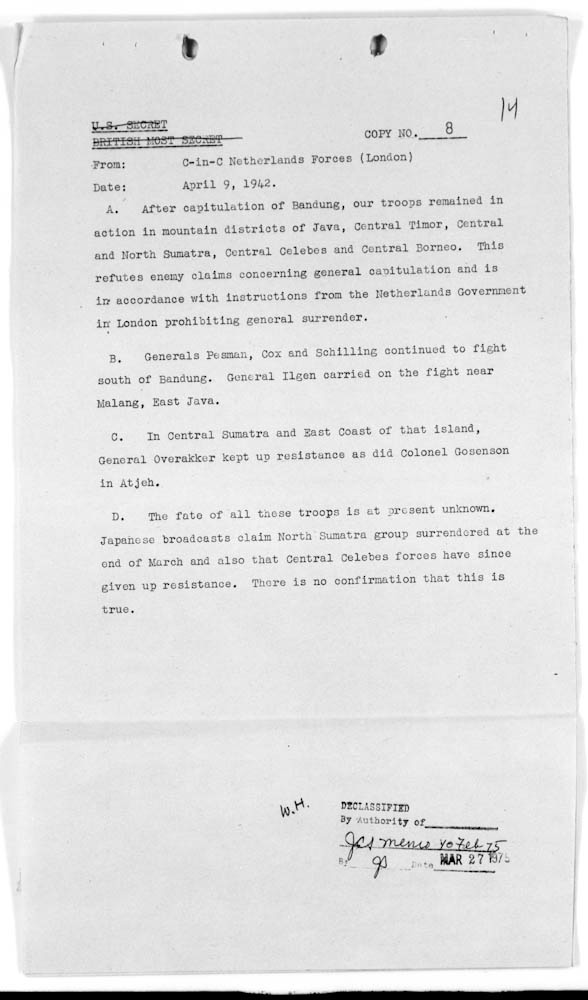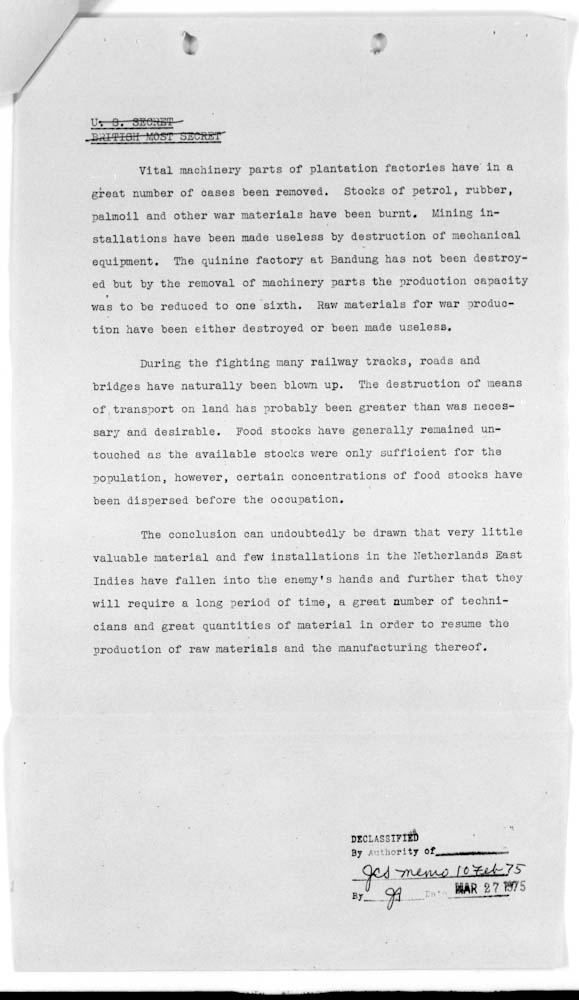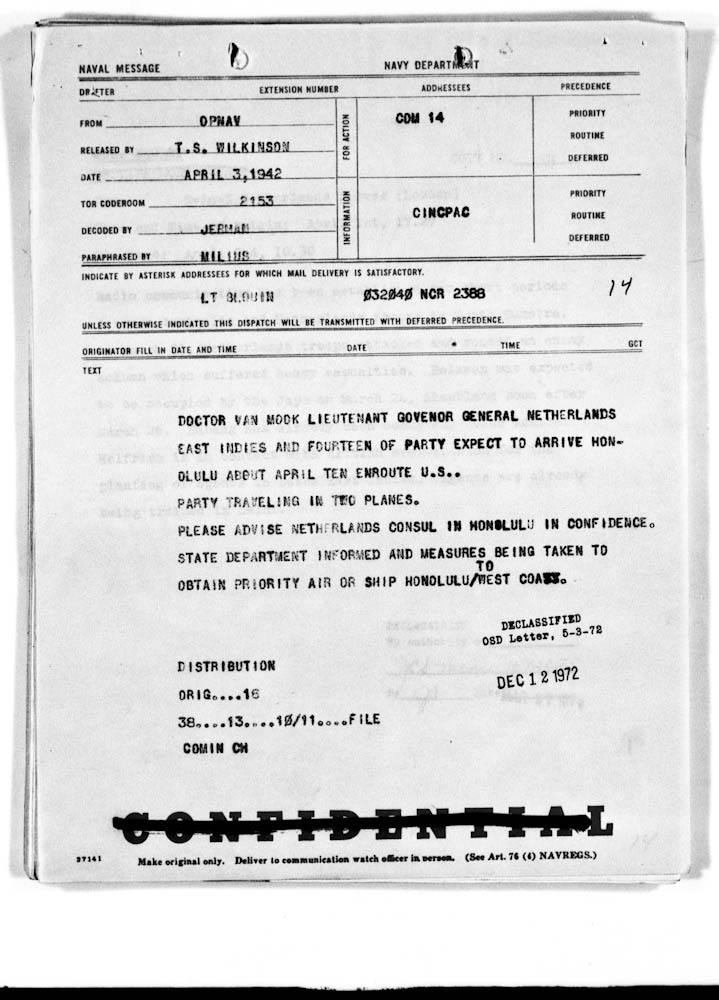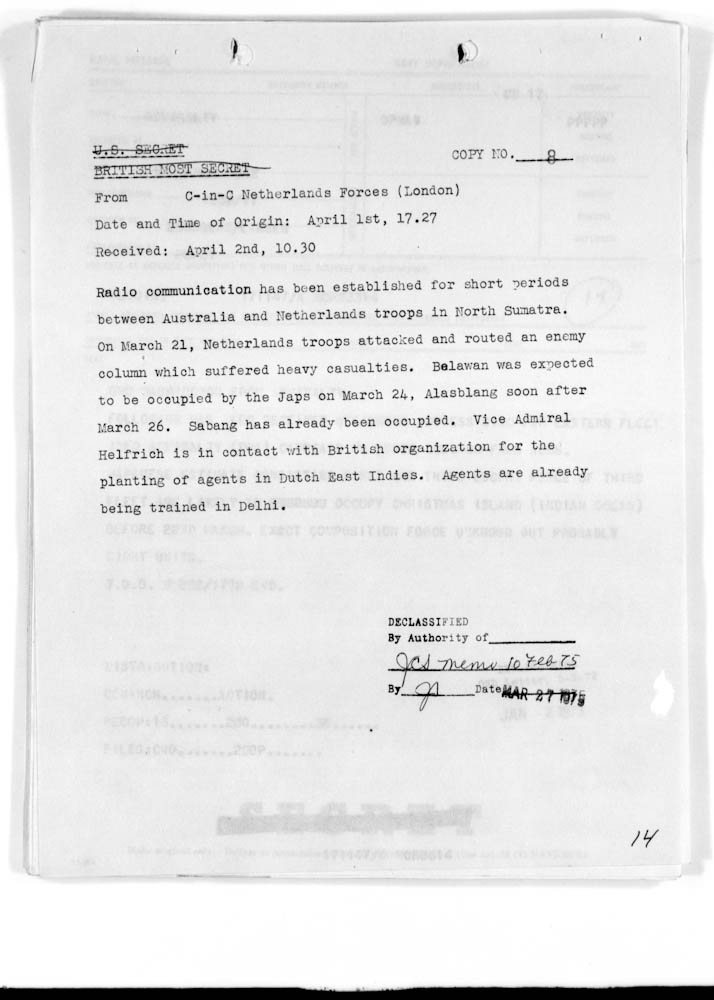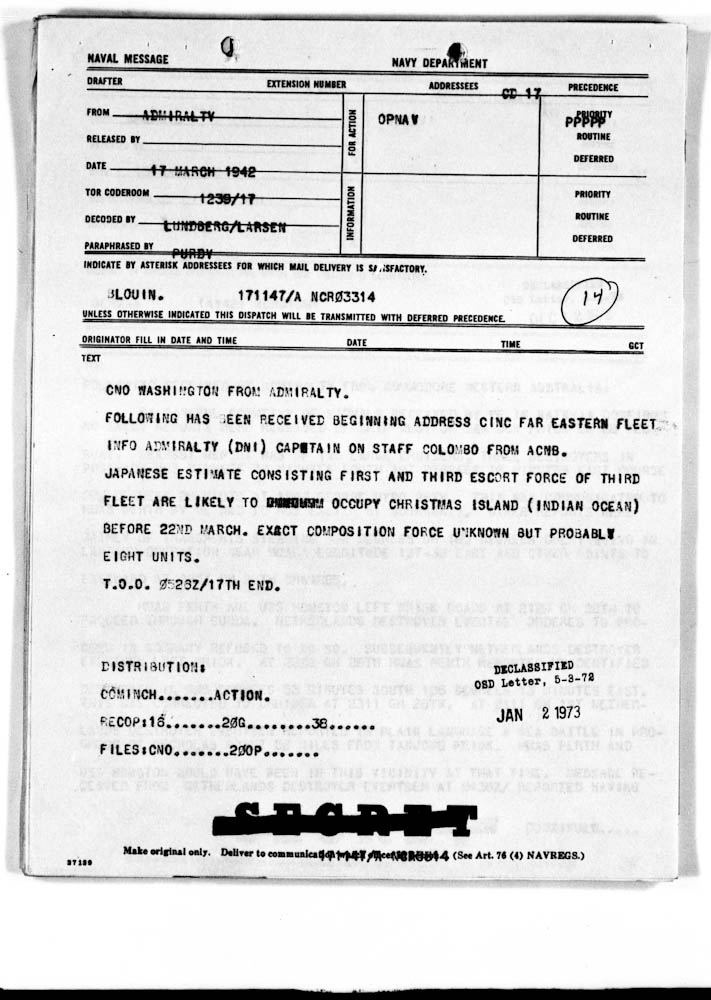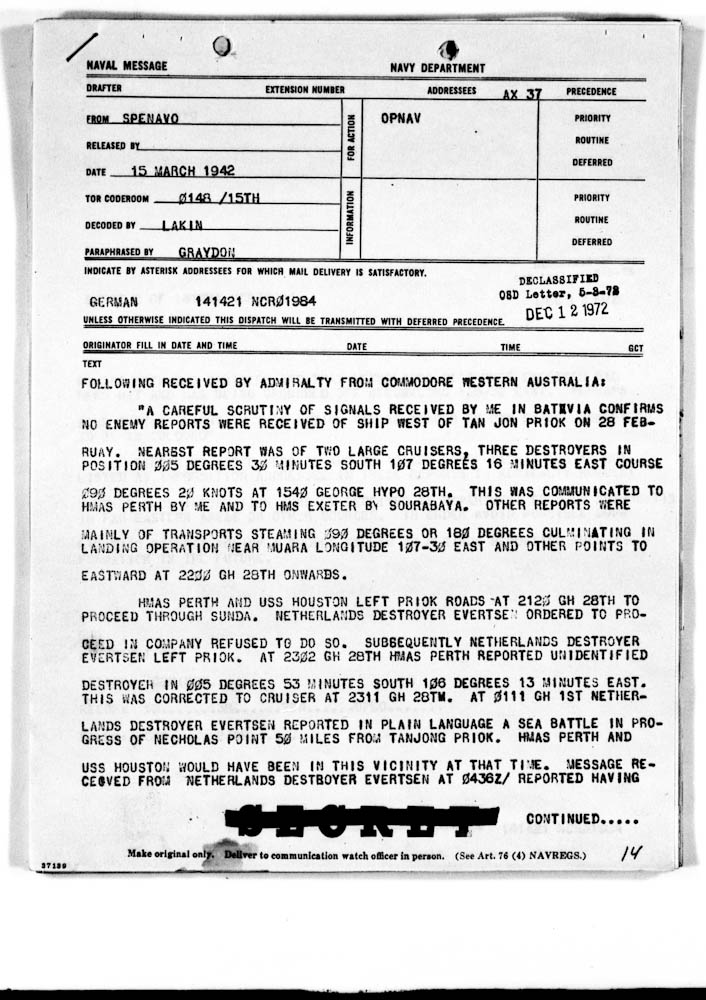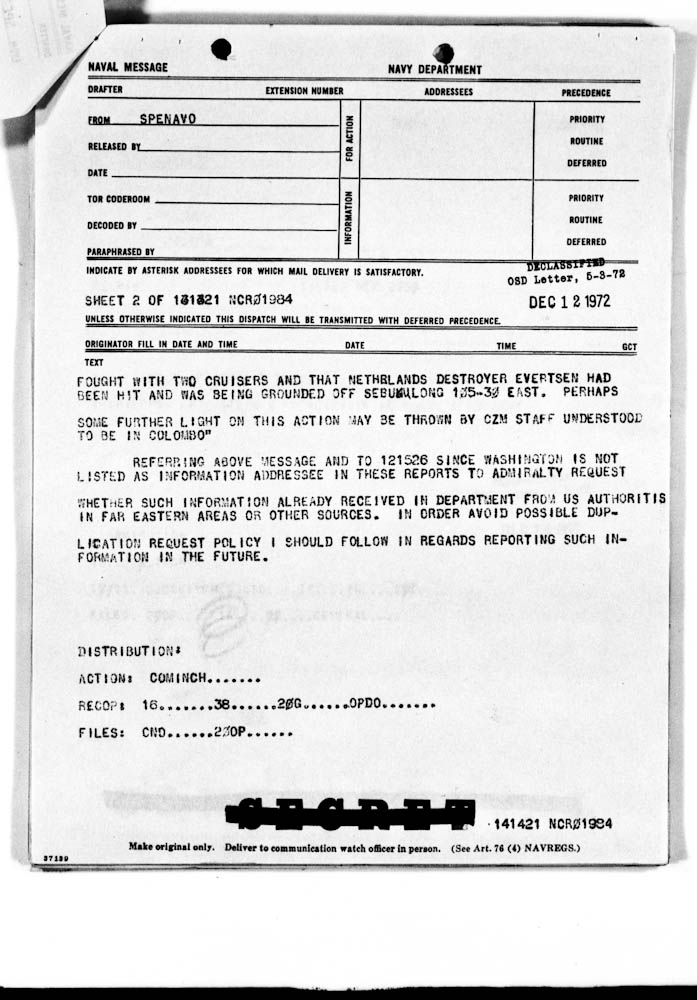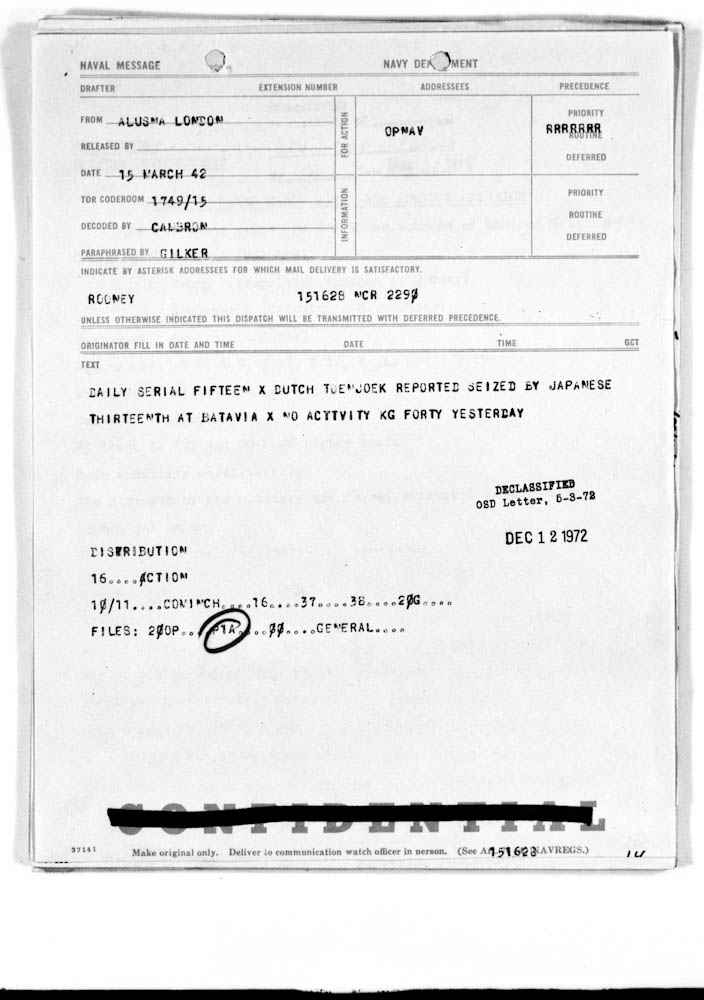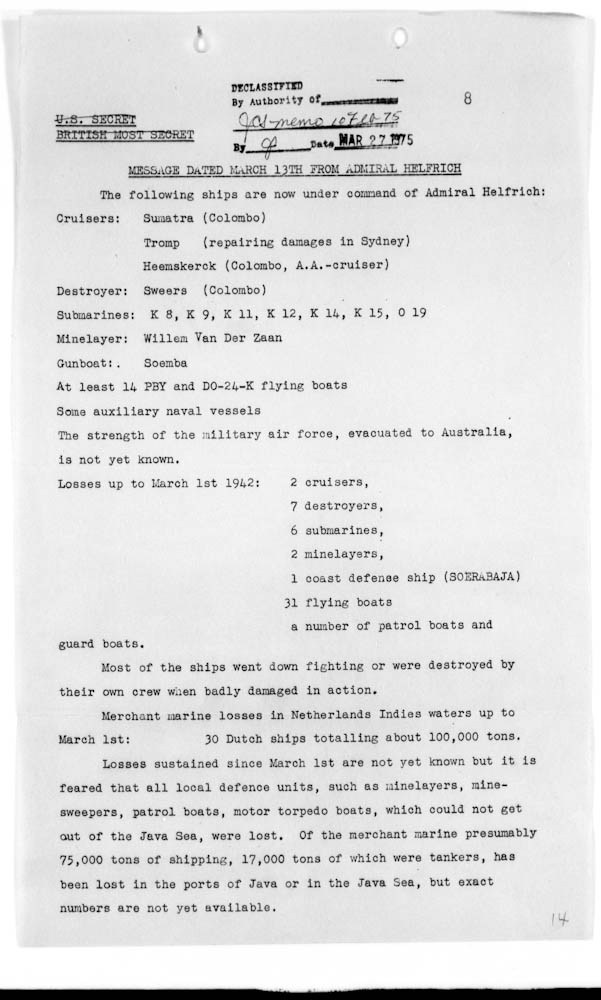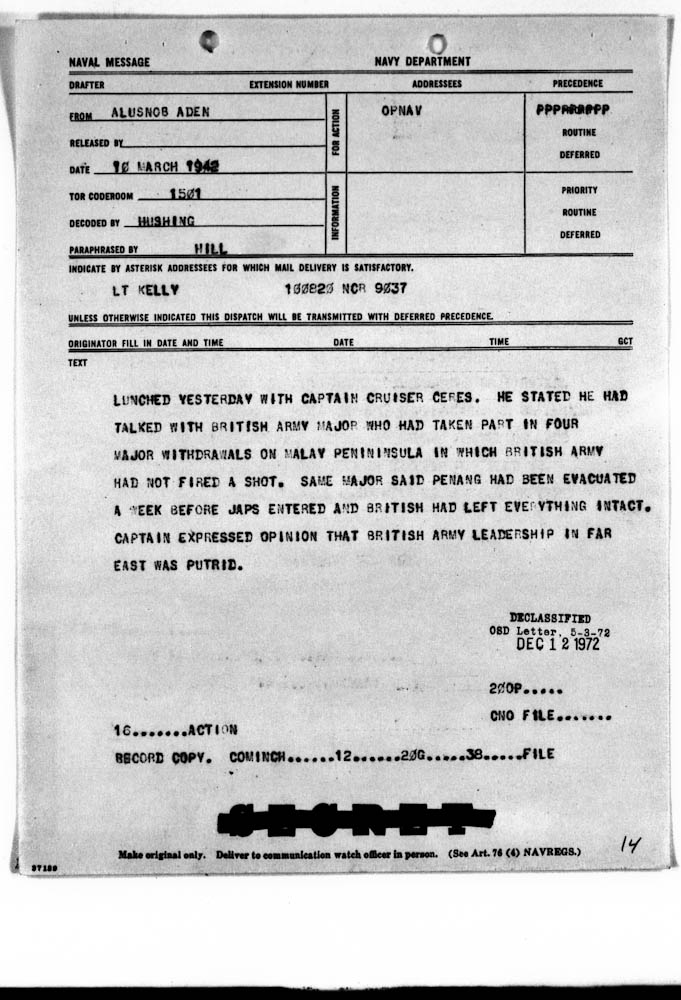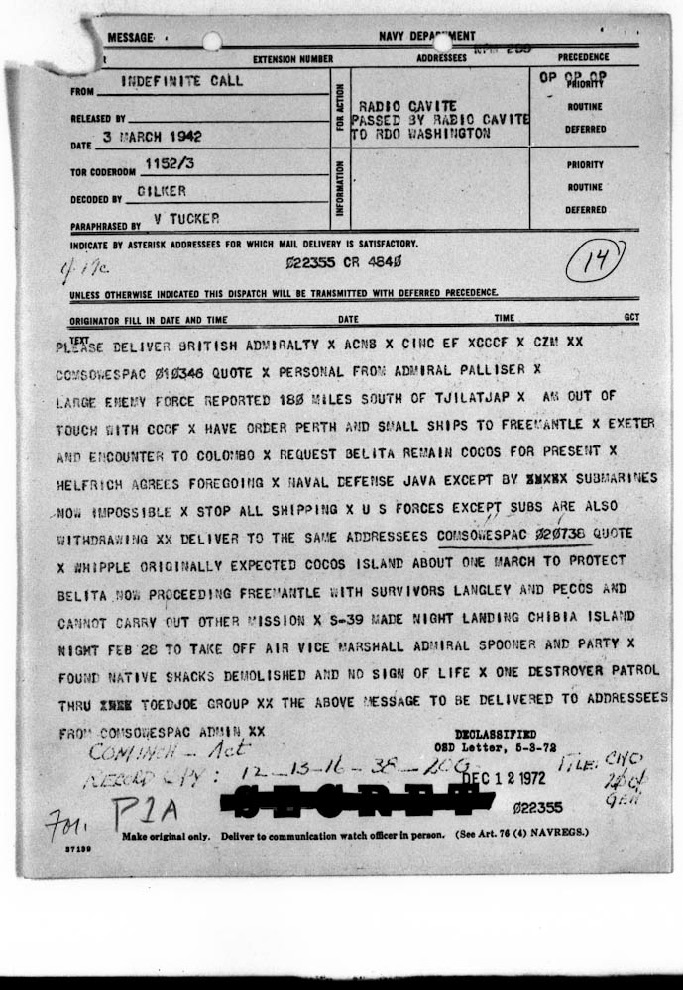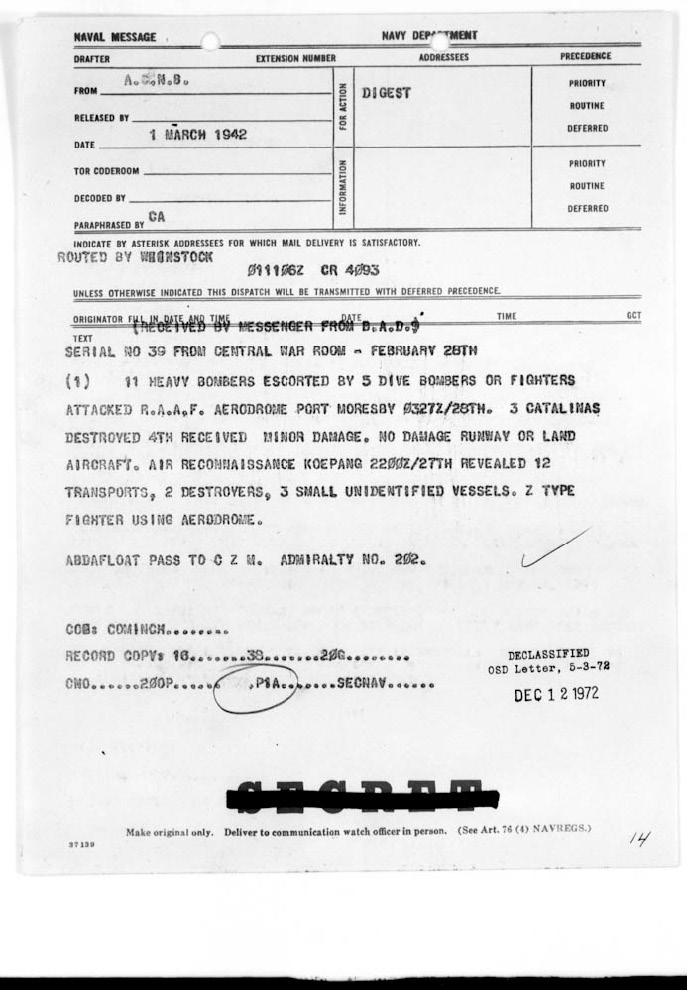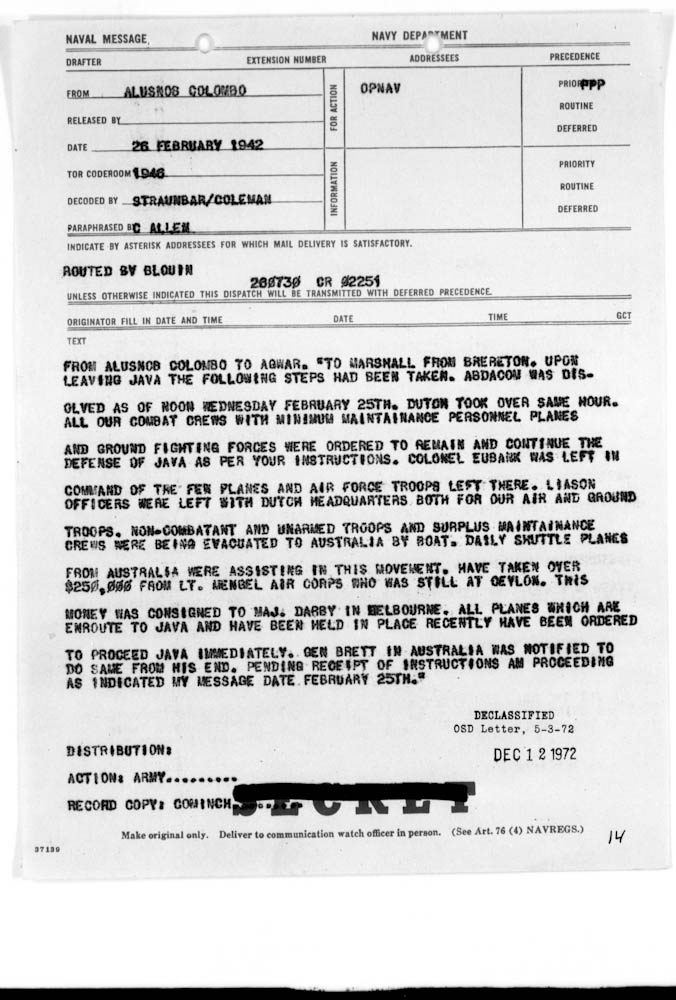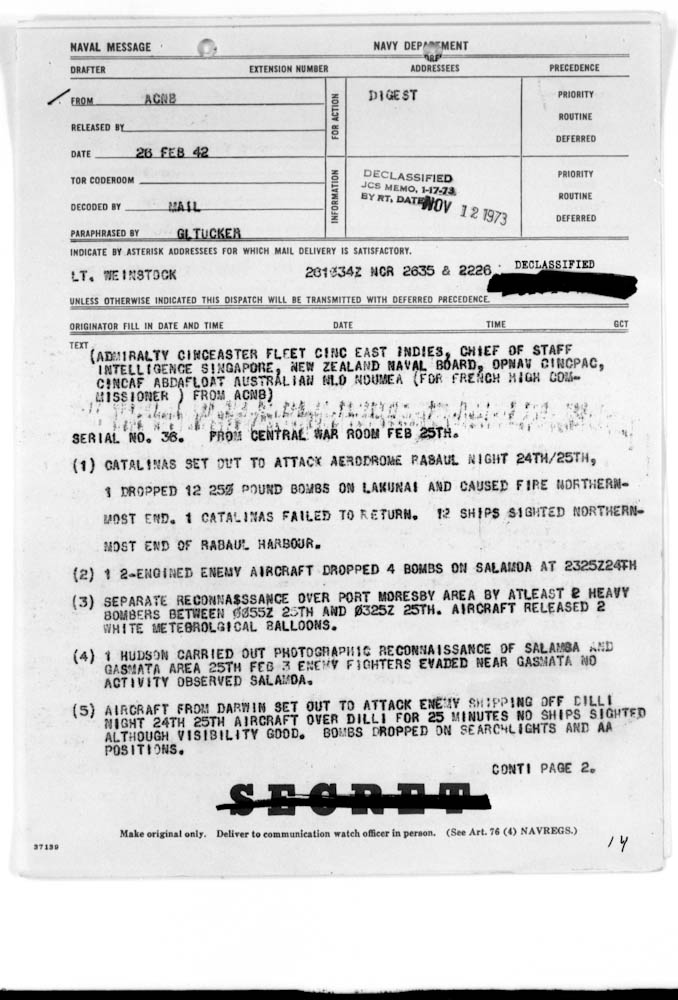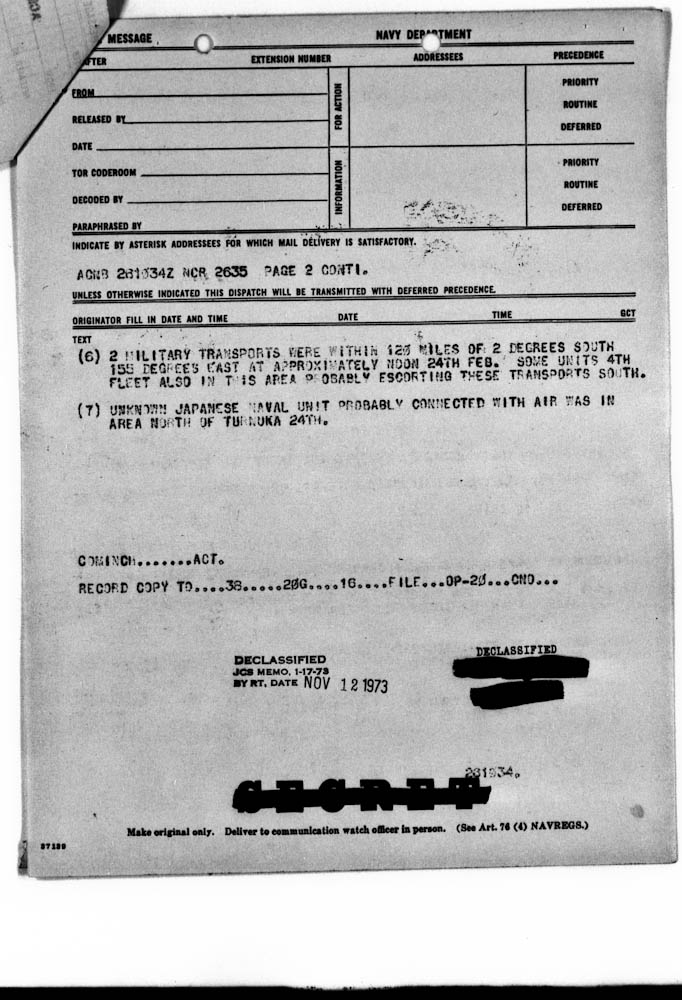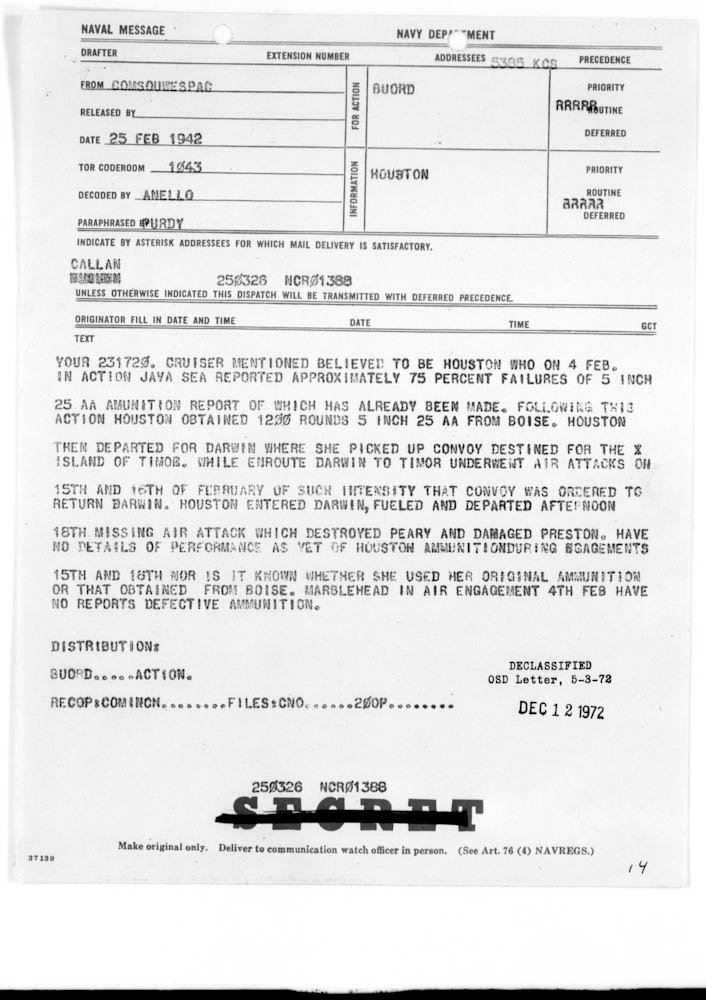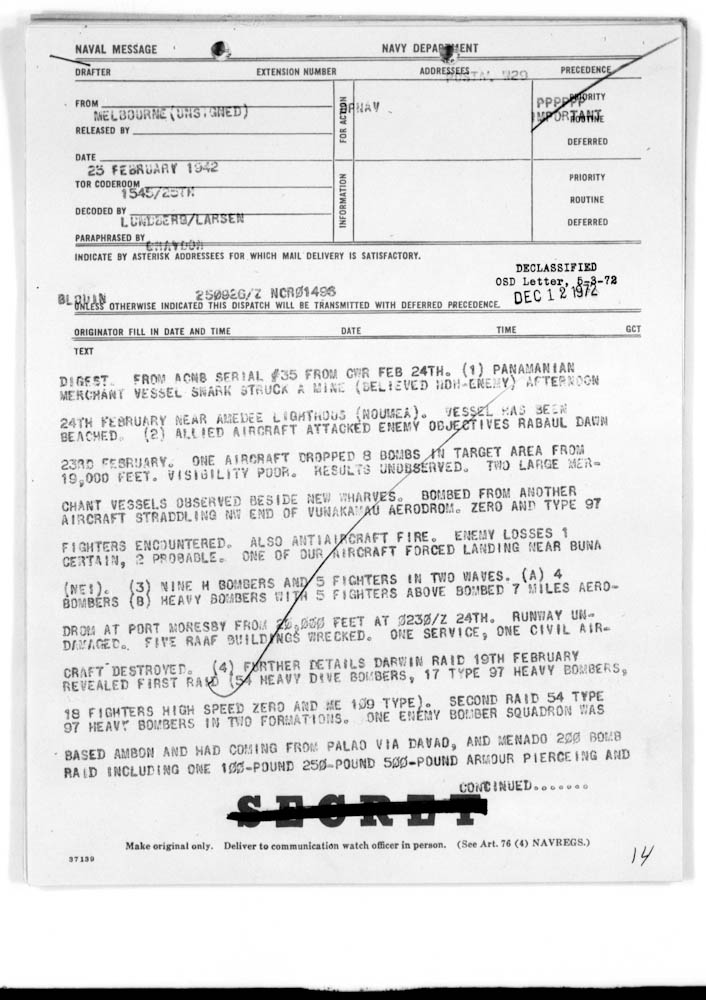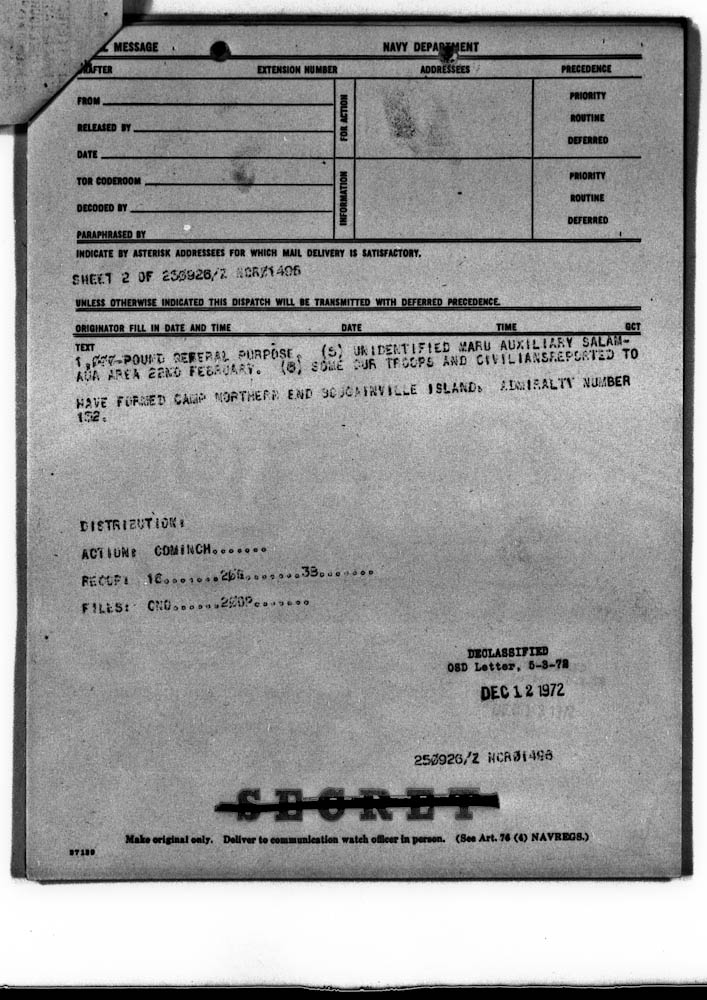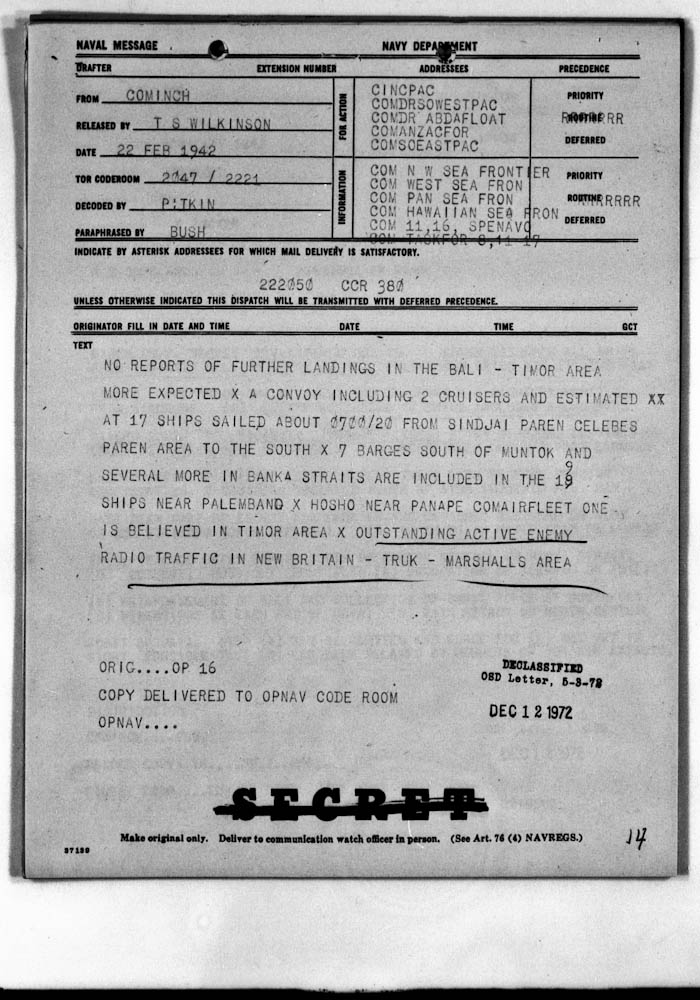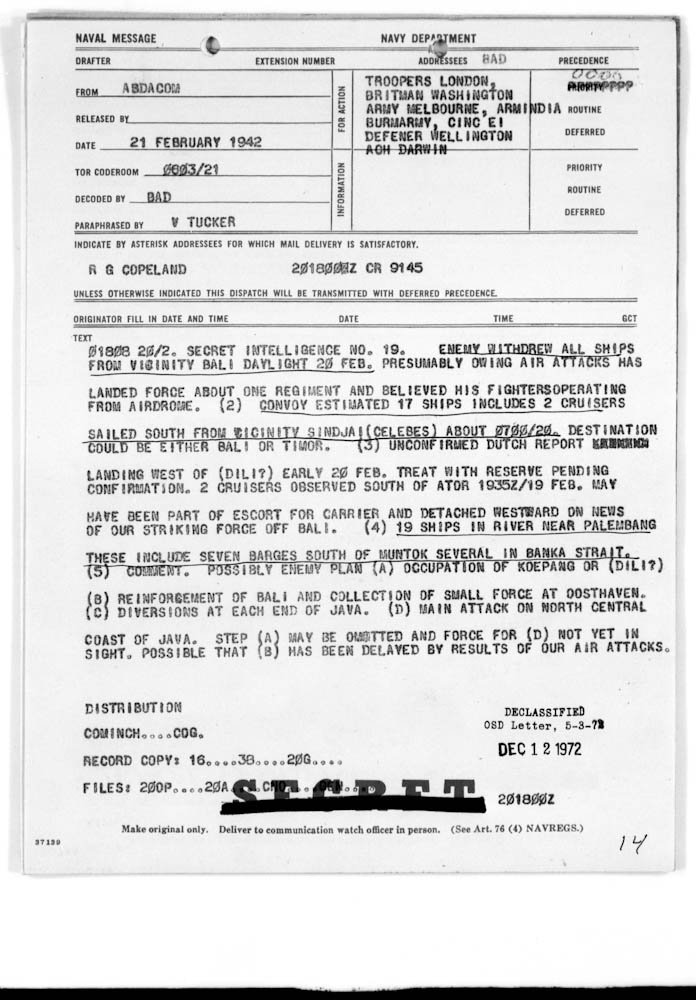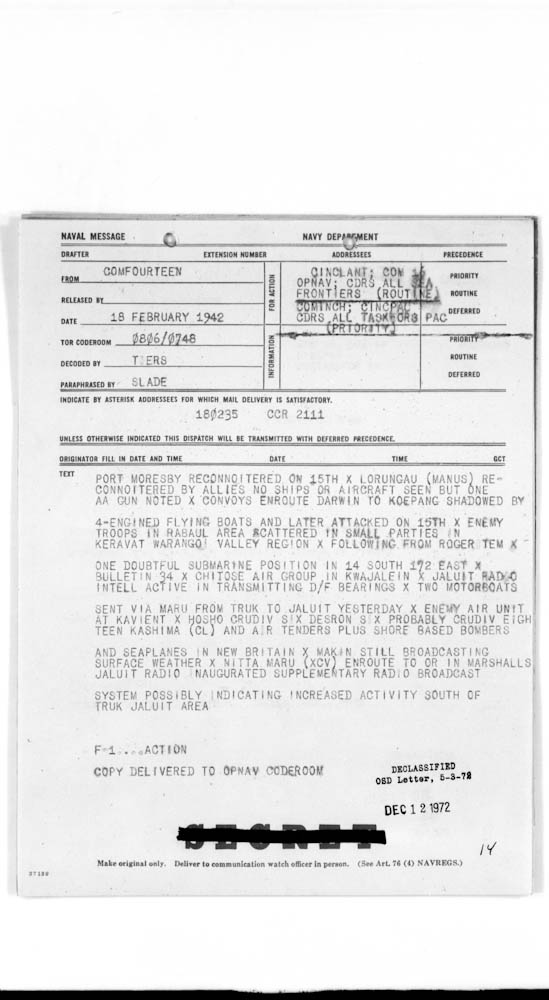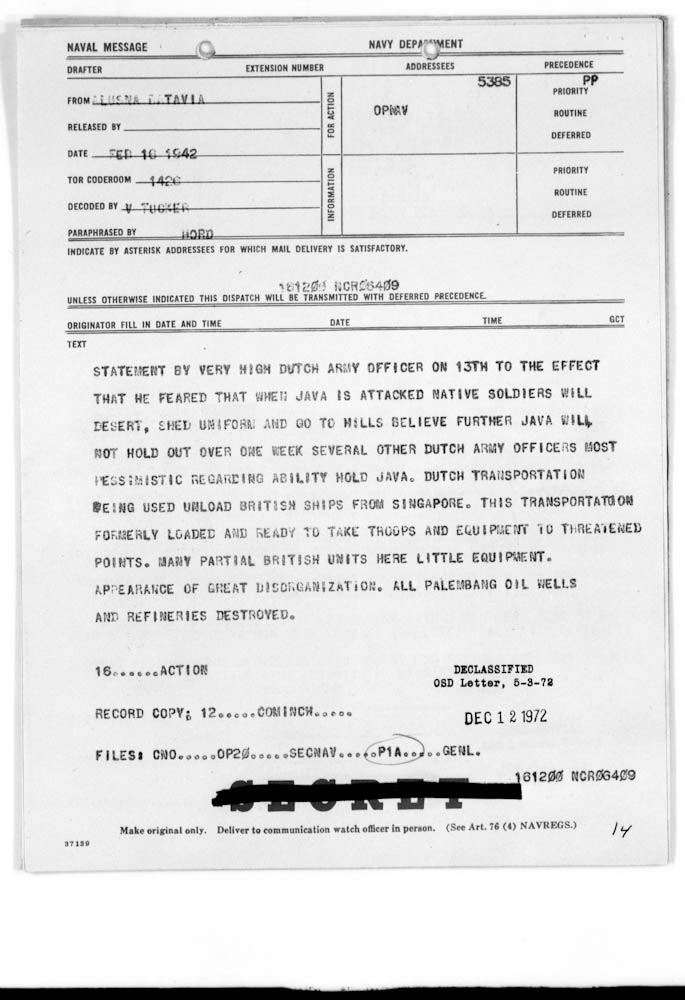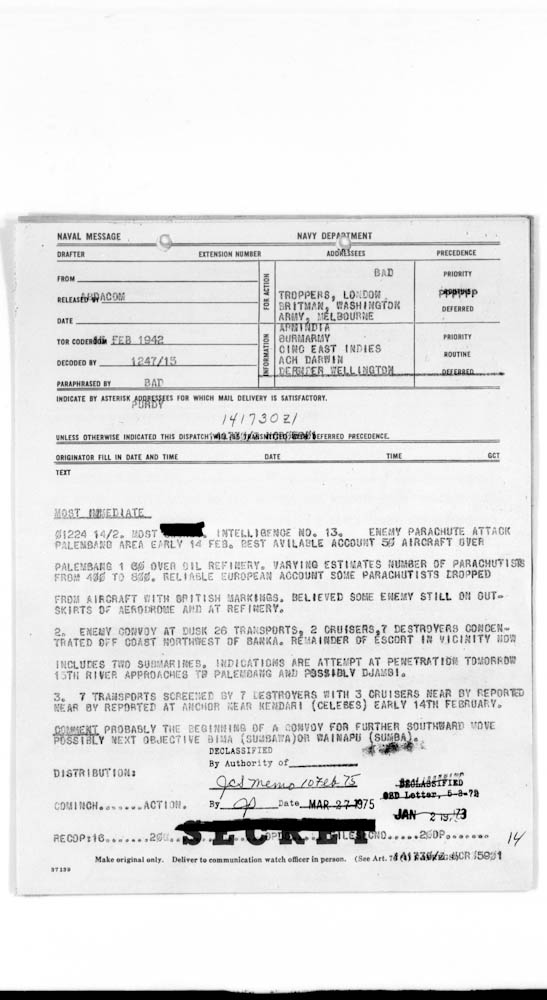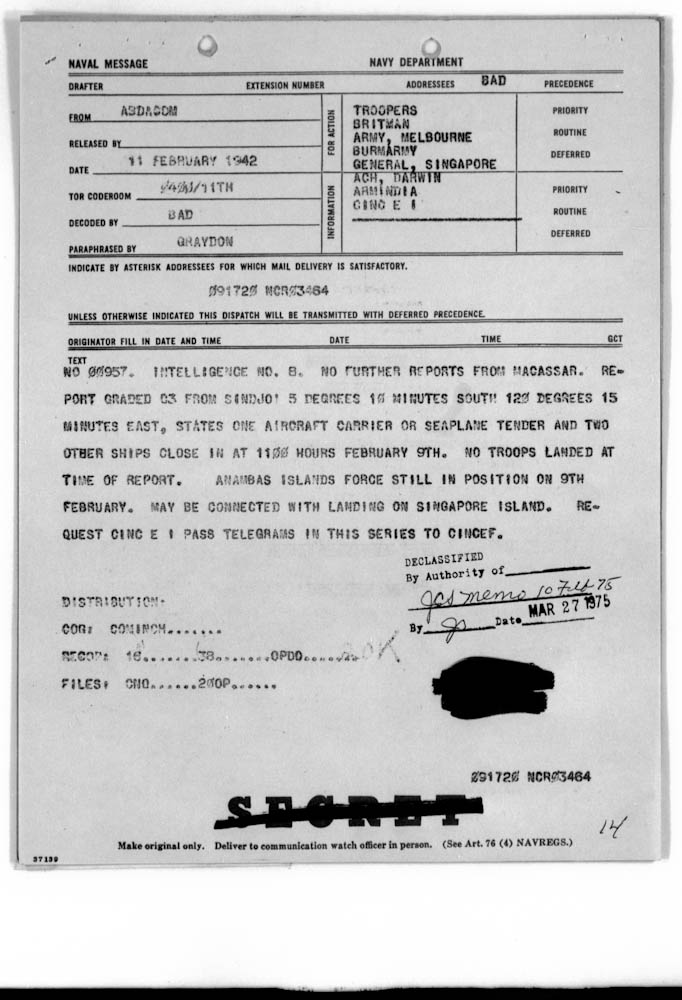U.S. SECRET / BRITISCH MOST SECRET
From: C-in-C Netherlands Forces (London)
Date: April 9, 1942
A. After capitulation of Bandung, our troops remained in action in moutain districst of Java, Central Timor, Central and North Sumatra, Central Celebes and Central Borneo. This refuts enemy claims concerning general capitulation and is in accordance with instructions from the Netherlands Government in London prohibiting general surrender.
B. Generals Pesman, Cox and Shilling continued to fight south of Bandung. General Ilgen carried on the fight near Malang, East Java.
C. In Central Sumatra and East Coast of that Island, General Ovrakker kept up resistance as did Colonel Gosenson in Atjeh.
D. The fate of all these troops is at present unknown. Japanese broadcasts claim North Sumatra group surrendered at the end of March and also that Central Celebes forces have since given up resistance. There is no confirmation that this is true.
From – Van Mook Australia
Date – April 8, 1942
The following summary of demolitions has been largely compiled out of information received from eye-witnesses and the knowledge of preparations made before the Japanese aggression. As the demolition of oil wells started a considerable time before the Japanese occupation, it may be assumed that they have been competely destroyed. Different systems were followed by the execution of the demolitions, but generally the result is that the wells themselves are unfit for use so that the enemy, in order to reach new oil, will have to drill new wells. The pipelines have also been destroyed by blowing them up every 550 yards. Stocks, tanks and refineries have been completely destroyed at Tarakan, Balikpapan, North Sumatra, Sungeigerong, Tjepu, Wonokromo and Bula. The demolition of installations at Pladju has failed as a result of a mistake of the Commanding Officer During an attack by parachutists. However, this installation was subjected for several days to aerial bombardment so that tanks and stoks will probably have been for the greater part or totally burnt, and refineries will have been damaged. Unfortunately, the archeves of Pladju have been captured by the enemy. The river Musi has been blocked by the sinking of Japanese ships. As far as is known, military and maritime installations have been completely destroyed: I assume that such demolitions have also been carried out at Bandung before occupation.
Engine factories and workshops have been made unfit for use.
Harbours have been blocked, harbour installations have been destroyed, whilst, as far as is known, no shipping of any size has fallen into the hands of the enemy.
Vital machinery parts of plantation factories have in a great number of cases been removed. Stocks of petrol, rubber, palmoil and other war materials have been burnt. Mining installations have been made useless by destruction of mechanical equipment. The quinine factory at Bandung ahs not been destroyed but by the removal af machinery parts the production capacity was to reduced to one sixth. Raw materials for war production have been either destroyed or been made useless.
During the fighting many railway tracks, roads and bridges have naturally been blown up. The destruction of means of transport on land has probably been greater than was necessary and diserable. Food stocks have generally remained untouched as the available stocks were only sufficient for the population, however, certain concentrations of food stocks have been dispersed before the occupation.
The conclusion can undoubtedly be drawn that very little valuable material and few installations in the Netherlands East Indies have fallen into the enemy’s hands and further that they will require a long period of time, a great number of technicians and great quantities of material in order to resume the production of raw materials and the manufacturing thereof.
From C-in-C Netherlands Forces (London)
Date and Time of Origin: April 1st, 17.27
Received: April 2nd, 10.30
Radio communication has been established for short periods between Australia and Netherlands troops in North Sumatra. On March 21, Netherlands troops attacked and routed an enemy column which suffered heavy casualties. Belawan was expected to be occcupied by the Japs on March 24, Alasblang soon after March 26. Sabang has already been occupied. Vice Admiral Helfrich is in contact with Britisch Organization for the planting of agents in Dutch East Indies. Agents are already being trained in Delhi.
Lees verder in onderstaande scans of dowload de pdf:

